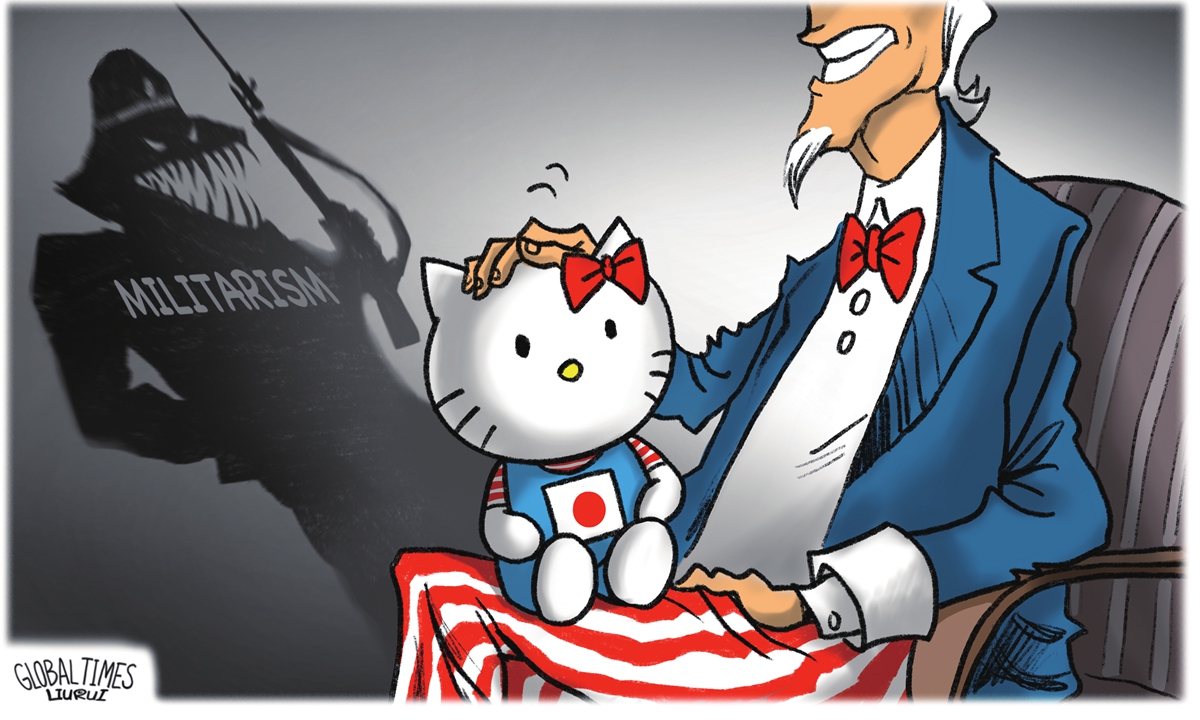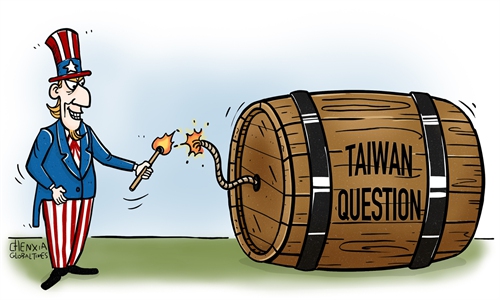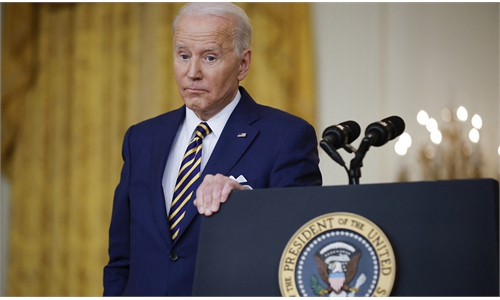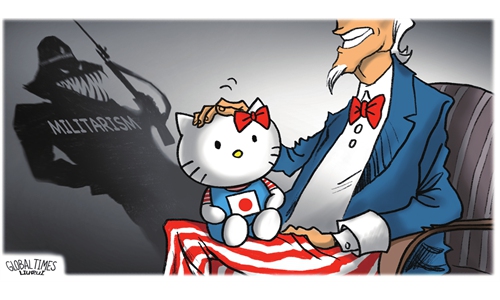US to make Japan 'a stronger pawn' to counter China's reunification as Biden to meet Kishida in UN

Japan Illustration: Liu Rui/Global Times
Amid current geopolitical turbulence, US President Joe Biden and Japanese Prime Minister Fumio Kishida are scheduled to hold a summit on Tuesday (US time) on the sidelines of the UN General Assembly in New York, where the Taiwan question will likely be discussed. Chinese experts believe that the summit's intent lies in loosening restrictions on Japan's military development and increasing its reliance on the US, so as to make Tokyo a stronger pawn in the Asia-Pacific to sabotage China's reunification process.
According to Japan's Kyodo News, Kishida is set to deliver an address at the UN General Assembly and meet with Biden in New York on the sidelines of the week-long general debate session, without mentioning whether it is a formal meeting or a more relaxed one with a personal atmosphere.
The possible summit between Kishida and Biden would be the first face-to-face meeting between the two leaders since June, when they attended the G7 summit in Germany on June 27, media reported. Biden and Kishida also held a three-way summit with South Korean President Yoon Suk-yeol days later at the NATO summit.
It is worth noting that the Biden-Kishida summit is coming after the in-person meeting between Japanese Defense Minister Yasukazu Hamada and his US counterpart Lloyd Austin at the Pentagon on September 15. The two senior officials agreed to cooperate "seamlessly" toward preventing attempts at "unilateral change" in the status quo in the Taiwan Straits, targeting China.
According to the Japan Times, Austin showed "strong support" for Japan's plan to update its three national security documents with a substantial increase in its defense budget. Japan, which is currently examining policy changes including an ability to attack missile launch sites in enemy territory, plans to update its National Security Strategy by the end of 2022.
Austin stressed that China's Diaoyu Islands, which Japan illegally claims as its territory, are under the scope of the US-Japan security treaty, according to Japanese media.
Da Zhigang, director of the Institute of Northeast Asian Studies at Heilongjiang Provincial Academy of Social Sciences, told the Global Times on Tuesday that Biden is likely to show support for the Kishida administration over its plan to increase military spending, ditching an exclusively defense-oriented strategy and amending article 9 of Japan's post-World War II "pacifist constitution," which renounces war as a right of sovereignty and the refuses to settle disputes using military force.
In terms of specific military aspects, the option to share tactical nuclear weapons between the US and Japan which was raised by former prime minister Shinzo Abe, the role of the US forces based in Japan, and how the US and Japan may be involved in a war across the Taiwan Straits are likely to be discussed by the two leaders, Da noted.
In December 2021, Abe claimed that "a Taiwan emergency is a Japanese emergency, and therefore an emergency for the Japan-US alliance."
Although Biden said in an interview with CBS 60 Minutes on Sunday that US forces would "defend" the island of Taiwan if a war breaks out, which was slammed as betraying of Washington's "no support for Taiwan secession" pledge, experts believe that it is unlikely that US forces could test the People's Liberation Army's strength by itself directly before Tokyo is knocked down.
The US will help Japan free itself from domestic and international constraints on its military development, a Beijing-based expert on international relations told the Global Times on Tuesday, saying that the US would build Japan up to use as a stronger pawn in its ambitions.
"America always uses its allies as pawns," said the expert who requested anonymity, "Washington's calculation is simple: If there's a war across the Taiwan Straits in the future, the Taiwan authorities will be consumed first, then Japan's forces, and finally the US will make the decisions that best serve US interests based on the changing situation."
The US will continue to create tension on the Taiwan question and reshape the international consensus of the one-China principle in the field of public opinion to provide reasons for Japan to increase its military readiness, the expert said.




